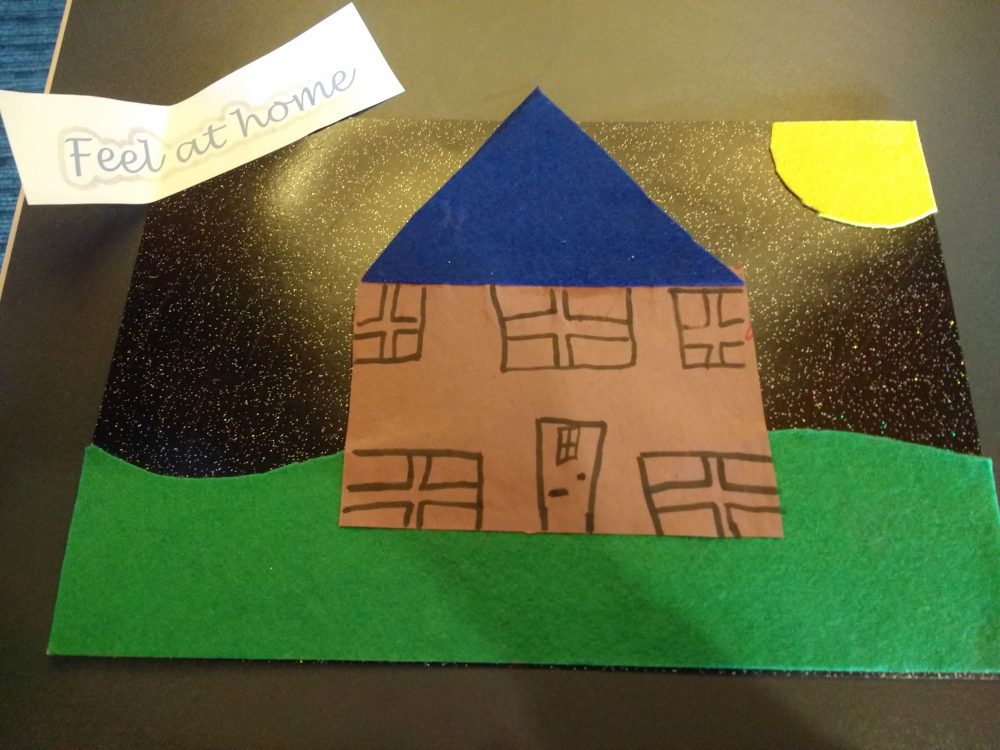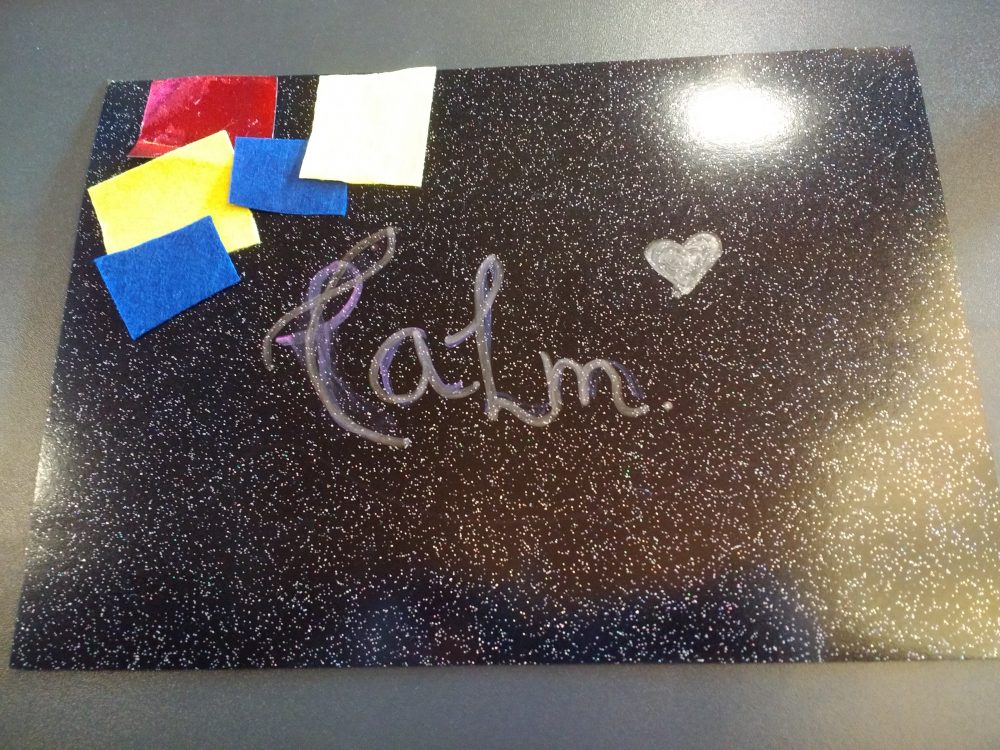You're on the Young People Site
Dedicated to self-harm recovery, insight and support.
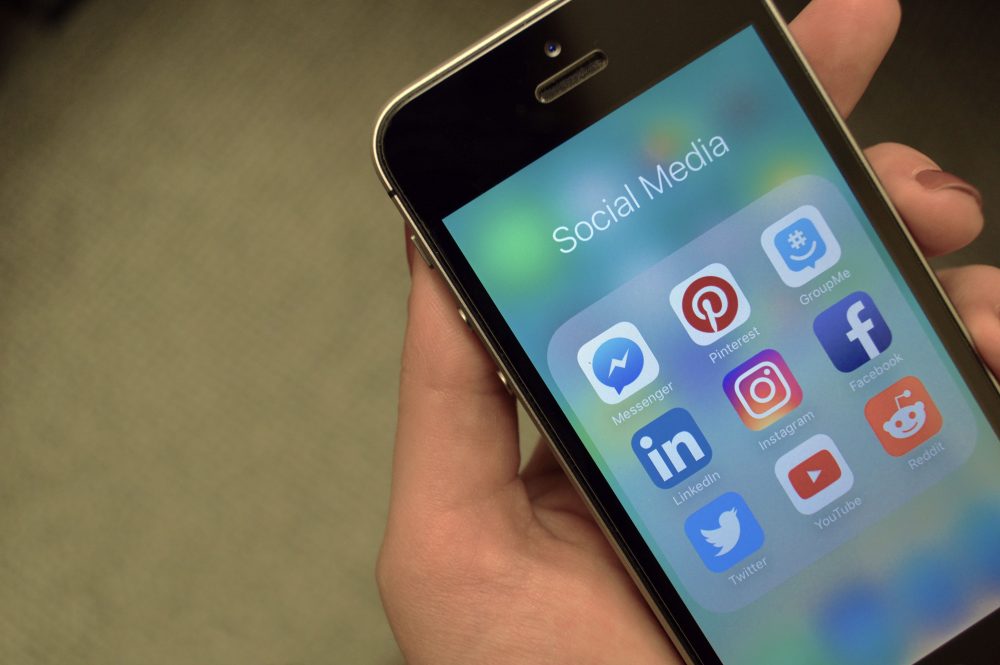
Jess Whittaker, a member of the SelfharmUK team, shares her thoughts about how you can stay smart on Instagram.
Today, as I was driving in to work, something I heard on the radio caught my attention and immediately made me turn up the volume. It was a report claiming that Instagram is one of the worst social media platforms when it comes to the impact on young people’s metal health.
In the UK, a survey of 1,479 people aged 14-24 were asked to rate which social media platform they felt had the most negative effect on them. They then scored each platform individually around issues like anxiety, depression, loneliness, bullying and body image.
Once the report had finished, I turned the radio off and thought for a moment. Like everything, Instagram has positive and negative sides to it, depending on what you use it for.
For example, lets’ say you’re someone who’s suffered from a mental health issue, such as self-harm or bulimia and are now in full recovery (well done you!). You might choose to use Instagram to share your story by posting inspiring quotes and photos that show the positive things in your life. There is no denying that Instagram is a really great way to visually spread positive messages quickly.
But what if you’re someone who spends hours on Instagram late at night, alone in your room, constantly comparing yourself to other people? You’ve stopped posting selfies because you’re so convinced that your photos look awful compared to your friends, that all you really use Instagram for now is to re-inforce your negative thoughts about yourself.
If you can relate to the above, don’t be embarrassed or afraid to speak up because… whoever you are and however you choose to use it, we have some great tips about how you can protect your mental health on Instagram:
- Limit the time you spend on there: like all social medias, Instagram can get kind of addictive. Whilst you might feel like time stands still when you’re on there, it doesn’t. You can literally Insta-away your whole weekend and before you know it, it’s Monday already and your back at School or College again! Just think of all that time wasted and all the fun things you could of been doing instead!? Next time you’re on there, set an alarm to ensure you don’t stay on there for too long, or only look during a short car ride somewhere. As soon as you are where you need to be, close your Instagram app and engage with your surroundings.
- Stop comparing yourself to others: this is a tough one. It’s easy for people to tell you not to compare yourself to others, but the truth is, it’s something that everyone has to deal with throughout their lives every now and again. It becomes a problem, however, when it starts to affect your self-esteem, so how you feel about yourself, and you stop doing the things you used to enjoy because you can’t see the point anymore. If you think Instagram (or any social media for that matter) is starting to make you feel that way, tell a family member or trusted adult. Speaking up isn’t easy, but talking about how you feel is the first step to getting help.
- Think that if it looks too good to be true - it probably is: chances are you already know this, but lots of photos we see on social media have been digitally manipulated. This means that they have been edited on a computer using software like Photoshop to make them look better than they are. Many of the Fashion brands or Celebrities you follow will use this technique, but it’s something we constantly have to remind ourselves of as they can become the norm and start to look real. Next time you see a photo of someone on Instagram, who looks too perfect to be real, have a laugh about the fact that nine times out of ten, they probably aren’t!
- Know where you can go for support if something you’ve seen is bothering you: if you see something on Instagram (or any other social media platform) that upsets you for any reason - report it using the options available, then tell a family member or trusted adult immediately. If you don’t want to talk about it with someone you know, you can call The Samaritans or Childline at any time.
- Don’t go on Instagram alone: at the end of the day, if you’re someone that has always struggled with how social media makes you feel, schedule times to login with your friends after School or College. This way you can instantly discuss anything that you have seen that is upsetting you and find out what your friends think. Again, if you’re still unsure, you can always talk to a family member or trusted adult.
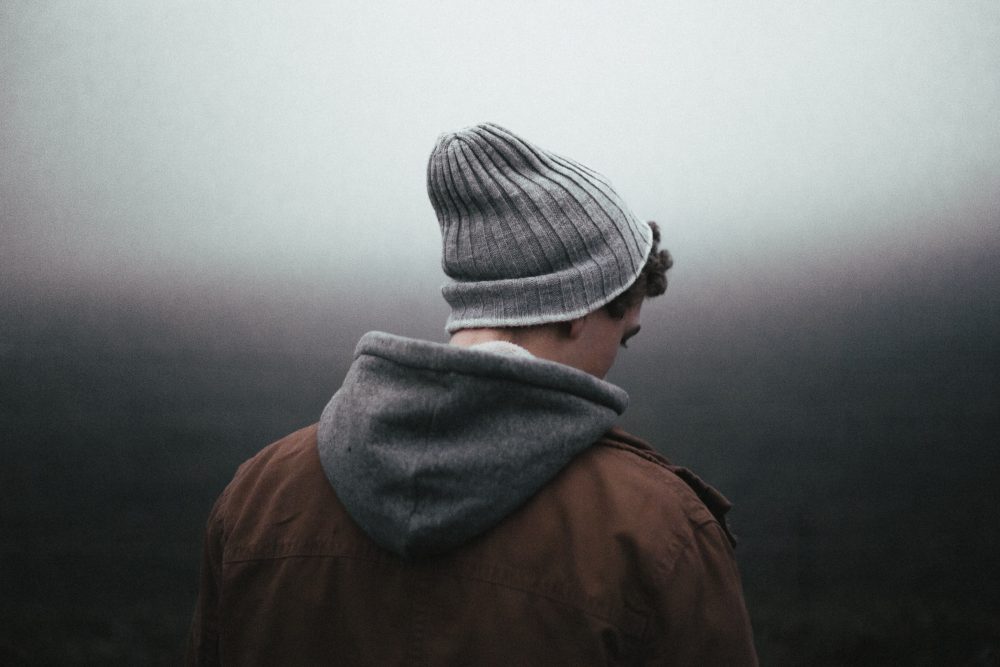
More young people than ever feel lonely. A recent survey by the BBC suggests that 40% of 16-24 year olds would say they feel lonely.
Most of us check our social media pretty often, and it looks like everyone else is having an amazing time doesn’t it? Pictures of them with friends at a party, on holiday with their family, chilling with friends that we don’t know, checking into the cinema with their partner…it looks like they aren’t lonely at all doesn’t it?
The reality is far from it – some people have many acquaintances to make it look like they aren’t lonely. They fill their lives with people who aren’t really friends and people they possibly don’t even trust much because they want to block out that feeling of loneliness.
Some people struggle to make friends and their online friends are the ones they talk to most because they can ‘pretend’ to be something they aren’t… but then end up feeling lonelier.
The common factor in the increase of loneliness in young people, is the rise in social media use because it doesn’t often create deep, meaningful friendships that are based on trust and shared lives. Ironically social media makes us feel lonelier, not less lonely.
So, let's look at some of the ways you could combat feeling lonely:
1️⃣ Seriously reduce your social media time.
2️⃣ Do something that creates connections with people face to face.
3️⃣ Find a hobby group – fitness, craft, music?
4️⃣ Eat with your family at mealtimes.
5️⃣ Say ‘yes’ to trying something new.
6️⃣ Connect with cousins, siblings, grandparents and wider family more.
There are lots of Organisations out there that offer opportunities to join groups or clubs in order to connect with other young people your own age. Do some research in your local area to find out what's going on and what you might like to get involved with.
If cooking's your bag - here at Youthscape, we offer something called Open House, which is a cookery project run by Gemma, our Drop-in Manager, and a professional chef! Over the eight weeks of the course you will learn to cook different dishes, improve your kitchen skills, and host a dinner for a disadvantaged group from the local community...
The aim of the project is to develop confidence in abilities, build relationships, integrate into our daily after-school Drop-in project, engage with a different group in the community, and through this become more connected, improve self-esteem, and begin to gain the skills that will enable young people to recognise and manage their feelings of loneliness and social isolation now and in the future.
If you are a young person aged 11-15 and living in Luton, why not get in touch with Gemma to find out more about our Open House project?
No one is to blame for feeling lonely: it’s not your fault, nor is it anyone else’s; so – this week; begin the journey to feeling less lonely.
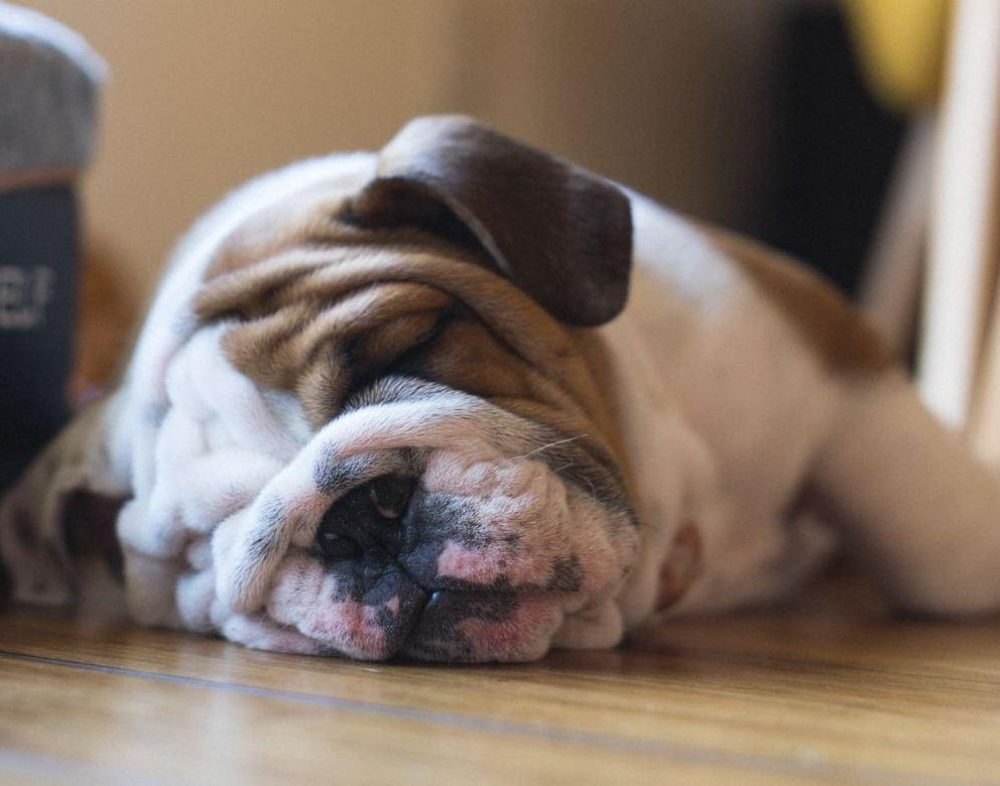
😴 If World Sleep Day isn't the BEST day of the year (apart from your Birthday or Christmas) then we don't know what is!?
😴 Did you know that as a teenager, you ideally need between 9 and 10 hours of undisturbed sleep a night (you’re not always going to get this, but the more often you do, the better).
😴 In honour of World Sleep Day, we’ve got a short mediation you can do to calm your mind before you go to bed. You might feel a bit silly doing this at first, but trust us, it really can help!
Get comfy, lay down, sit in a squishy chair, wherever you want, just make sure you’re comfy and not going to be distracted.
Close your eyes.
Now breathe, big deep breaths, try breathing in for a count of 4, hold for a count of 7 then breathe out for a count of 8. Do this a few times.
Once your breathing is steady, start being aware of your senses. What can you feel, smell, hear?
Can you feel your heart in your chest? Take a moment to be thankful for your body, how it all works and what it is capable of.
Now think about the last 24 hours. What has been difficult? What has made you feel drained or sad?
As you breathe out, try and let go of these things, it might take a while but give it a go.
Once you have done that, think about the good things in your day, what has brought you joy, what has made you feel alive?
Take a moment to be thankful for them.
Think of the next 24 hours. How can you bring more joy into your day? What can you do to notice the moments that make you feel alive?
Breathe.
When you're finished, open your eyes.
How was it?
If you want to know more about World Sleep Day - you can check out their website here.

The blog post below was written by Ellen.
When I was 11, I began to suffer from intense panic attacks and I turned to self harm to alleviate some of that pain. Seven years later, I’ve got a long list of diagnosis, including anorexia nervosa, depression and anxiety.
Throughout my GCSEs I barely went to school. I taught myself the courses at home and pushed through my exams. I managed to get A*s, but I couldn’t shake the feeling that I wasn’t really living.
The school I was in at the time was very focused on getting the top grades and getting girls into the ‘best' universities. But even at 11 I knew I didn’t want to be a lawyer or a doctor or an accountant or an engineer… but I couldn’t work out what I did want. And I’ve realised that that’s okay.
One of the biggest steps I’ve taken was starting therapy again. I stopped going for a long time because my body and mind were too weak to benefit from it because of my anorexia, but once I was at a stable weight I went back. My therapist has allowed me to open my eyes to the beauty in the world and always encourages me to chase my dreams, even if I’m not sure exactly what I want. She’s helped me to look for coincidences in life; the world starts to connect up and forms a safety net around you.
She was crucial in helping me transfer to an art college for sixth form, and it’s one of the best decisions I’ve ever made. Things are still really hard sometimes but I am learning to get in touch with myself more and I feel like the universe is there to support me.
I have found myself in art; I joined weekend classes in a London photography studio when I was 15 and I realised I could explore a format people want to see and that makes sense to me. I love to create narratives through both words and images; I am interested in psychology and colour theory and I use art to try and understand myself and others.

I created a scanography series in which I expressed my mental health journey through distorted self-portraits and eerie colour palettes. I was inspired by Amy Hughes, a painter I found reading Aesthetica magazine. Encased (2017) is psychologically and physically charged; I was struck by the strong highlights arching over a figure's back with an agonised, scrunched up face, distorted by the reflected light and texture of a plastic prison. I reached out to Amy and interviewed her for my project - she even invited me to the opening of her show! She encouraged me to express my true-self, which helped me develop my interest in the nature of mankind.

According to a survey carried out by the Mental Health Foundation 2018, 74% of adults in the UK alone report feeling overwhelmed or unable to cope. 51% of these adults felt depressed, and 61% felt anxious. 16% had self harmed and 32% said they had experienced suicidal thoughts. It is hard to tell whether we are just noticing and appreciating the effects of mental health more nowadays, or if there is a crisis as dramatic as reported. Either way, to experience mental health issues or to support someone with them is incredibly, painstakingly hard. I know from my own experience how isolated, hopeless and empty these problems can make you feel. Some of my images are my attempt at describing how you can feel like you're living multiple lives; we lie to people and tell them we're okay, we are misunderstood by others, and we don't know how we even really feel.
As the scanner moved, I lifted my head and lowered it at regular intervals to create the more frozen style of image. I’ve also tried to depict the feelings of isolation, disorientation and sadness. I pressed my face against the scanner to create visible pressure on my nose and forehead; the world is so vast and scary, yet we can feel caught-up and claustrophobic living in it. The qualities of the images create a kind of wavering mood-line - a bit like a line graph - as well as confusion and feeling out of control. I moved my face along with the scanner, not worrying about the slight shake of my body as I did so as this is what created the wavering effect.
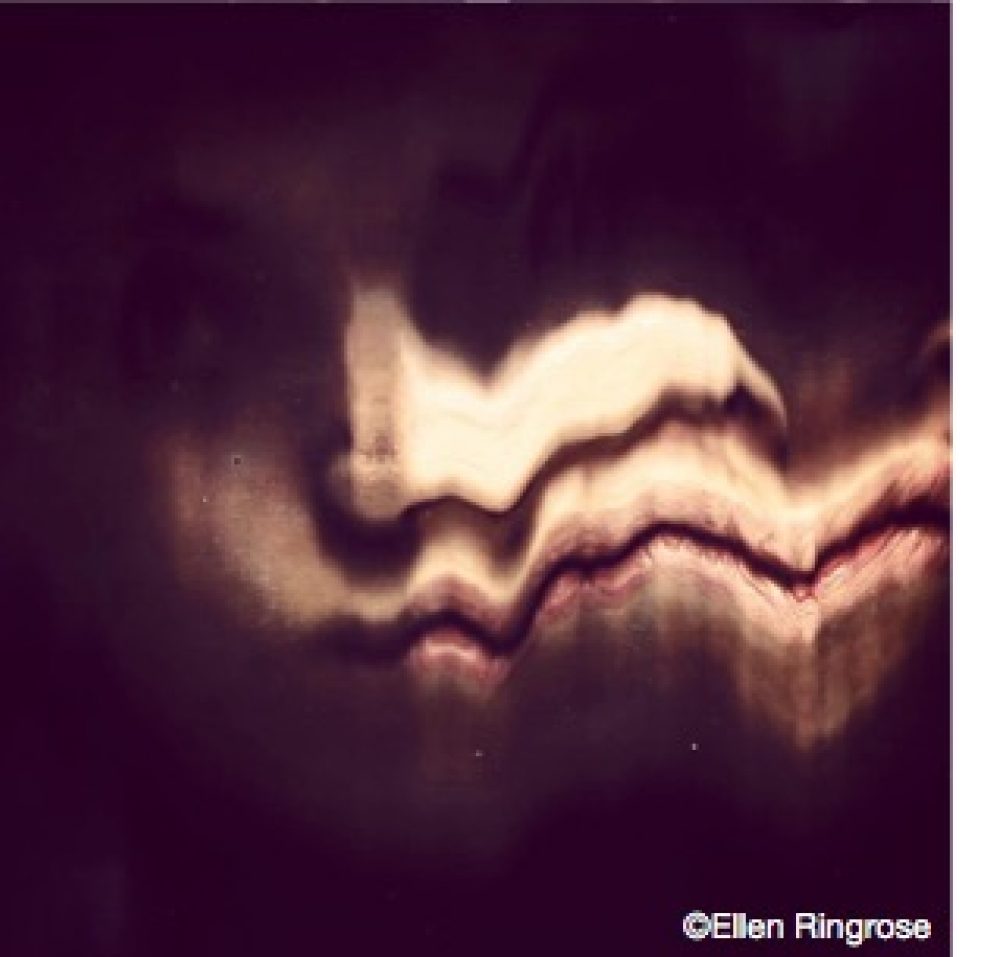
I didn't want to make them specific to any one mental health issue; they are universal and can be understood by many. For instance, some images may as a representation of schizophrenia. I wanted to create a sense of understanding for those suffering due to mental health issues, be it the one who is ill or the one caring for them, and also to educate those who think the mentally ill are simply 'over dramatic' or 'not worth helping'.
Reasons to try being creative 🎨...
1️⃣ Creatives activities can help to reduce stress levels, aid mental calmness and serve as a relaxing distraction. You can get absorbed in your mental flow when creating.
2️⃣ Art also helps creative thinking; it can better your problem-solving skills. There are no wrong answers in art and we are allowed to imagine our own solutions. Flexible thought can stimulate in the way that learning a new language can.
3️⃣ Art can improve cognitive abilities and memory for people with serious brain disorders, such as dementia, by stimulating cell growth in the brain.
4️⃣ Chronic health conditions can be left behind while you create; a positive experience, and a chance to achieve allows you to express your feelings and help you find your identity.
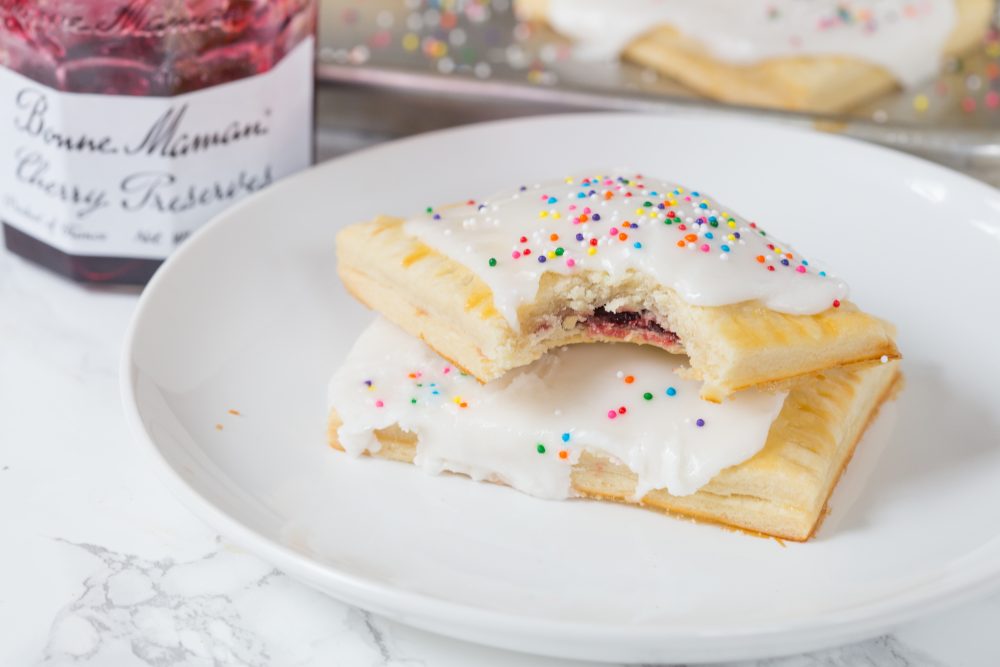
Feel like you're having a bad day? Why not give the below homemade Pop tart pies recipe a go to help you feel a little better? 🙃
EVERY DAY MAY NOT BE GOOD, BUT THERE'S SOMETHING GOOD IN EVERY DAY HOMEMADE POP TART PIES RECIPE
Ingredients:
- 1 (15 ounce) package refrigerated pie crusts
- 1/4 cup strawberry jam, divided
- 2 cups confectioners' sugar
- 2 tablespoons milk
- 1/2 teaspoon vanilla extract
- 1 tablespoon coloured decorating sugar, or as needed
Method:
- Preheat oven to 425 degrees F (220 degrees C). Line baking sheets with parchment paper.
- Unroll the pie crusts, place on a lightly floured work surface, and roll the crusts slightly with a rolling pin to square the edges. Cut each crust into 8 equal-sized rectangles. Place about 2 teaspoons of strawberry jam in the center of 8 squares, and spread the jam out to within 1/4 inch of the edge of the pastry square. Top each with another pastry square, and use a fork to crimp the squares together, sealing in the jam. Use a knife to trim the pastries, if desired. Move the filled pastries to the prepared baking sheets.
- Bake in the preheated oven until the edges are lightly golden brown, about 7 minutes. Allow to cool on the baking sheets. Meanwhile, stir together the confectioners' sugar, milk, and vanilla extract in a bowl to make a spreadable frosting. Spread the cooled tarts with frosting and sprinkle with colored sugar.
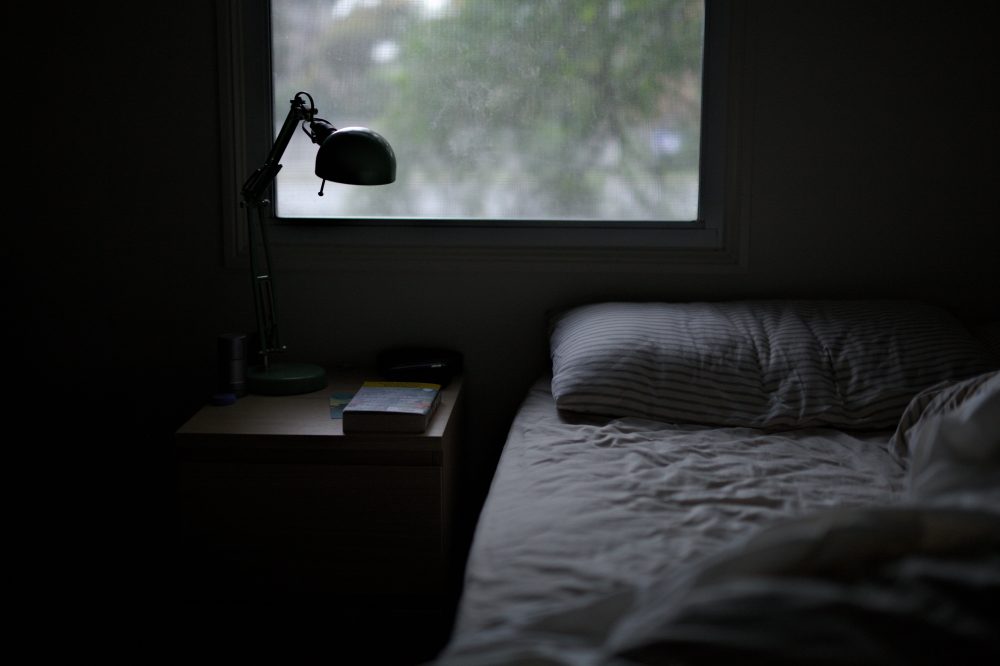
Some young Japanese men are refusing to leave their bedrooms and are choosing to withdraw themselves from society. The reasons aren't always very clear, but in Japan, it's known as hikikomori.
Hikikomori refers to the act of isolation, and to the young men themselves. The word translates as 'pulling inward' or 'being confined'. Often, a hikikomori's family are both ashamed and at a loss as to how to help their child. Some men have not left their own houses in over a decade!
Isolation and loneliness can have a major impact on our mental health. A scheme called 'Rent-a-sister' in Japan is being used to help these hikkomori men to begin to recovery from their reclusiveness. You can watch more about this here.
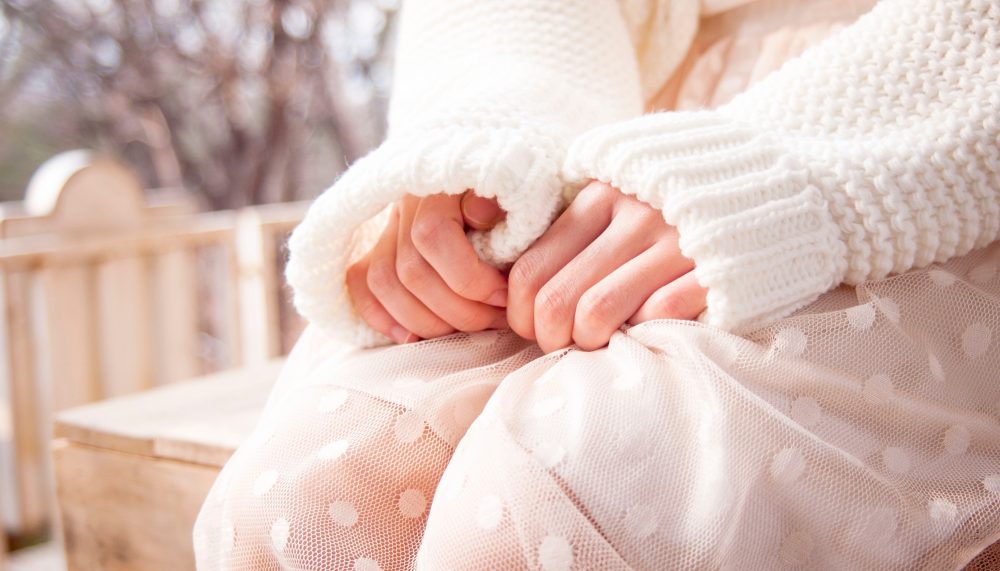
Some people like this lead up to Christmas, some (like me and my family!), really don’t!
The Christmas decorations look pretty and the shops get busier and the Christmas feeling is in the air – but it doesn’t make me get the warm Christmas glow; in fact it begins to make me stressed right from the moment it starts…
The pressure for the perfect film like Christmas family gathering is unachievable – the perfect family game time; the perfect present wrapping, the perfect friends to go out with, the perfect family to share it will – perfection doesn’t exist, in any place at any time.
The media Christmas portrayal adds to our sense of dread – the pressure to smile, laugh, not row, not feel sad – can make us feel very detached from Christmas: so this year, in the lead up here are some tips:
1. Ignore TV films and adverts! We aren’t going to reach a Hollywood Christmas ideal – so let’s not bother. Watch Elf and comedies – they keep a good perspective on it!
2. Try to imagine Christmas day now – what works for you? Do you need to communicate any of that to your family – who don’t you want to see over Christmas? How long do you have to visit relatives for? Begin to start the conversations now so they don’t come as a shock to your family – take control and be prepared to compromise.
3. Make stuff – loads and loads of stuff! Don’t buy it, make it. Keep your hands and mind busy, the personal stuff doesn’t need to cost much nor does it have to be perfect – enjoy the process and the result.
4. Don’t give yourself sky high expectations of yourself over Christmas. If you need to take regular breaks from family, do it. Look after yourself now so that you have the energy for it as it gets closer; plan out the Christmas holidays so that you get a good balance of rest and play.
Love,
The SelfharmUK Team
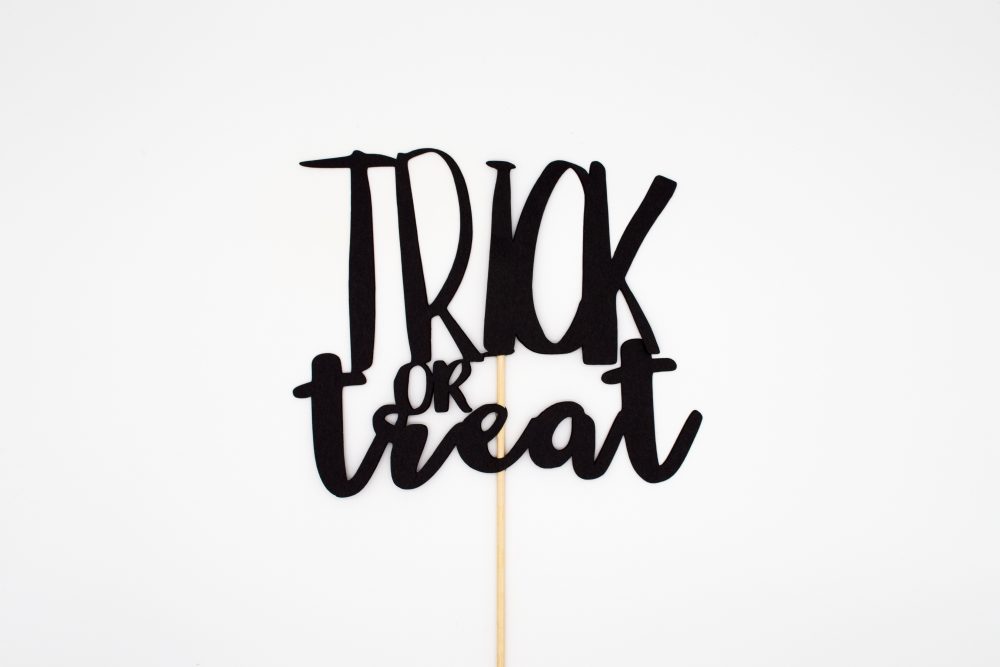
What are the things that weigh you down, hold you back and drain you?
We were thinking about this during the Hope Group earlier this week. If you don't know what the Hope Group is, you can read more about it here. What we found was - often the things that weigh us down, hold us back and drain us, are the things that bring us the most joy too.
For example, I really love my family, but sometimes it feels like they make my life a living hell at times! My mum in particular often weighs me down with lots of nagging and asking questions about what I'm doing at the weekend, and why I can't tidy up after myself. This type of criticism can make me feel increasingly drained, knocking my confidence and holding me back from doing things incase I'm no good at them.
Sometimes, writing down all the things in our head that we know are weighing us down, holding us back and draining us is a good exercise to do. This is because taking thoughts out of our head and onto paper can make them appear a lot less powerful and give us more control over them.
Here's the activity we did during the group...
Bandaged Mummies activity
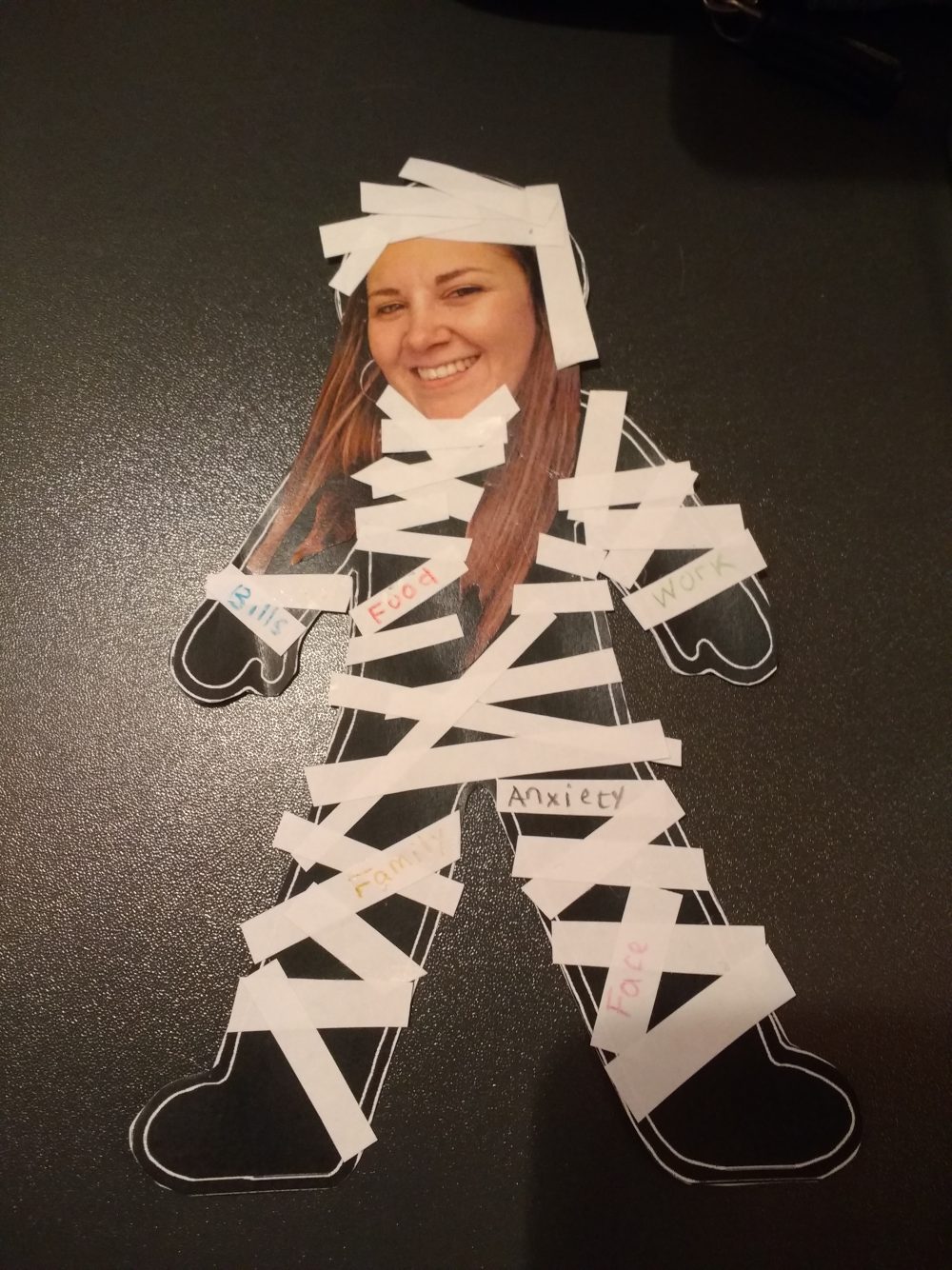
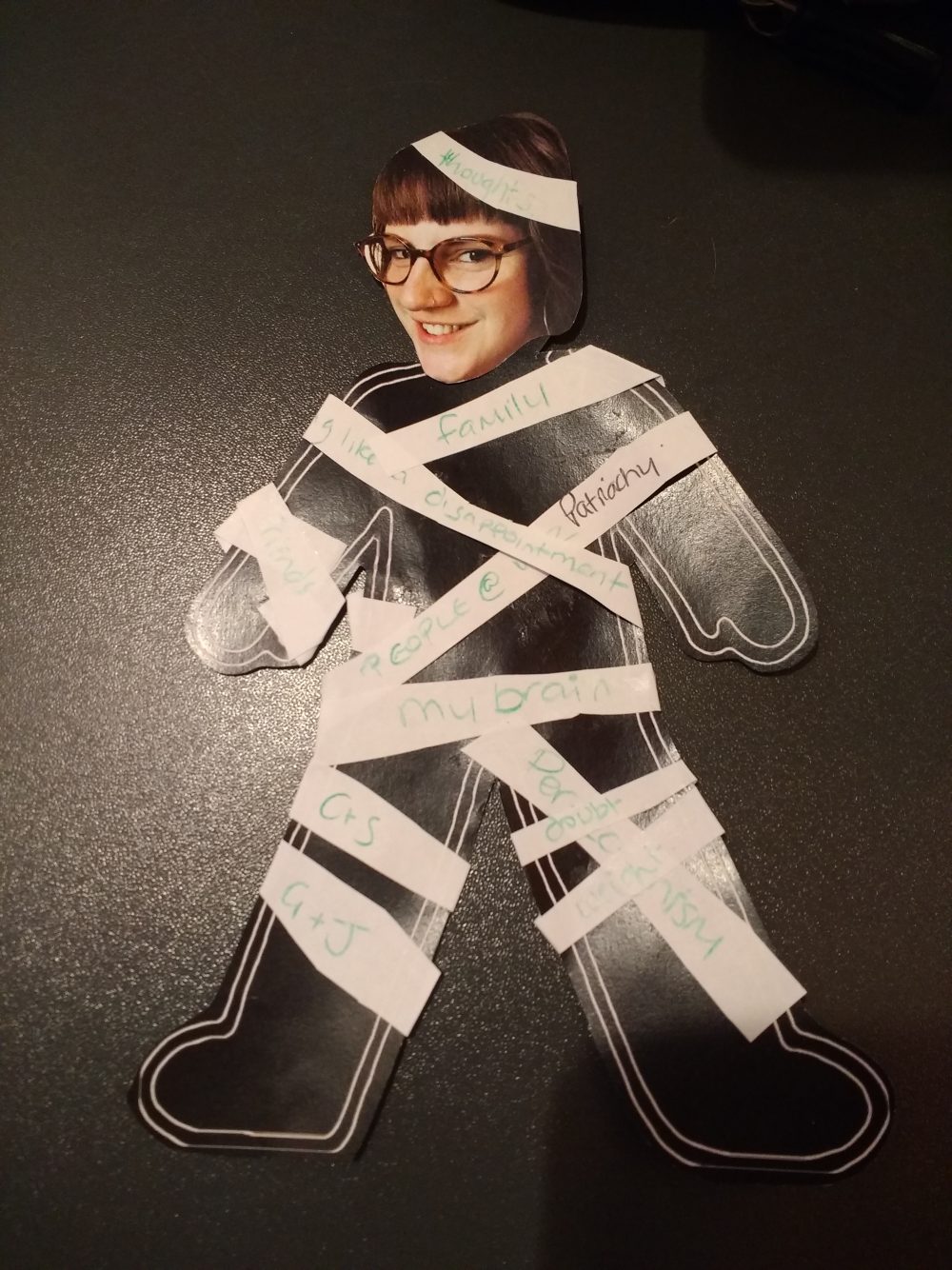
To make your own Bandaged Mummy, you will need:
- Scissors
- Glue
- Plain A4 white paper
- A photo of your head
- A piece of A4 black card
1) Use the black card to cut out a body shape
2) Cut out the photo of your head and stick it onto the body shape
3) Cut up strips of white paper and stick them like bandages on your mummy
4) Think about all the things that weigh you down, hold you back and drain you, and write them on the bandages
5) Keep your mummy as a reminder of all the things that can weigh you down, hold you back and drain you - BUT REMEMBER - you have control over how they make you feel!
Happy Halloween 🎃
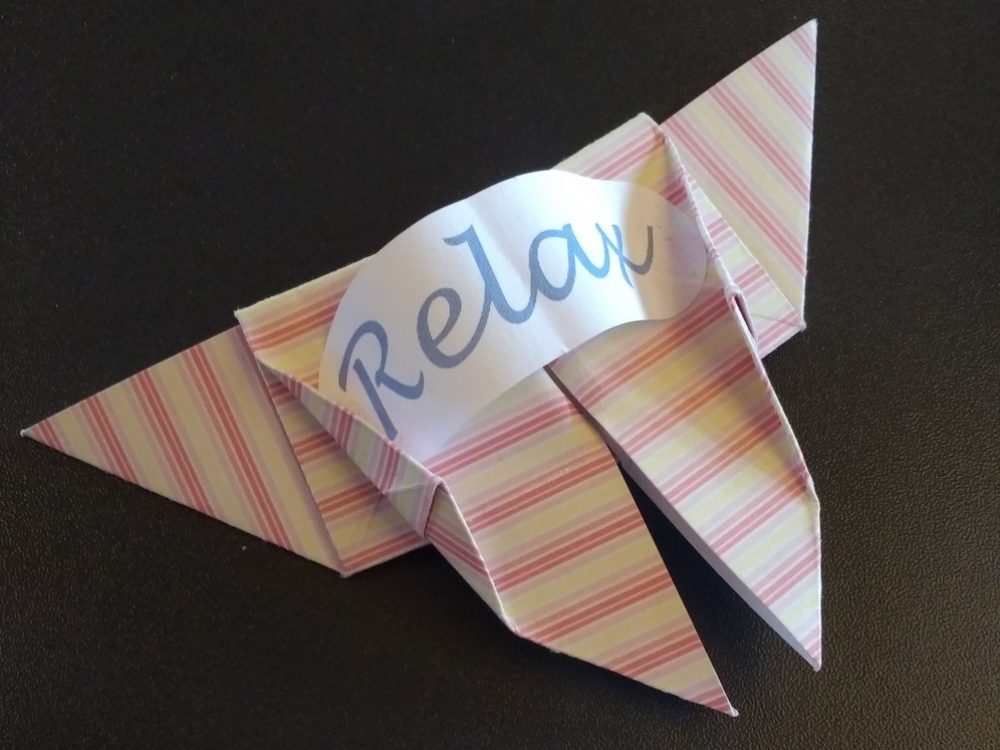
Last week at drop in was ‘relaxation week’. What’s drop in and why was it relaxation week we hear you ask? Well, drop in is basically what we call our after school club for young people. Every week night from 3.30pm until 6pm, young people from Schools all across Luton come and hangout here at the Youthscape building as soon as the bell rings for their final class. When they arrive, they usually head straight for the PlayStations, the pool table or to buy themselves a milkshake or a toastie! But that’s not all there is to do.
Every week, we have a different theme a drop in. The idea of each theme is to offer advice and to encourage young people to reflect on what that theme means to them and their life. To do this, we often set up activities and games based around that theme. For relaxation week, we were specifically looking at:
- Why rest and relaxation are important
- Different ways to relax and look after ourselves
- Relaxing physically, mentally, and spiritually
One of the activities we invited our young people to take part in order to explore what the word ‘relaxation’ actually meant, was collaging. If you search in a thesaurus, you’ll find that there are lots of words and phrases that mean ‘to relax’. ‘Unwind’, ‘loosen up’, ‘calm’, ‘sit back’ and ‘feel at home’ are just some examples. Can you think of anymore?
Using these words and phrases, we asked young people to pick the one that resonated with them the most, and to create an image or collage that visually represented how they interpreted it. Here’s how they got on…
👆 Some chose to create images that related to their lives specifically, by drawing their house or showing how they relax by sleeping.
👆Others made images that were very literal of the phrase they were trying to represent.
👆And some were a lot more abstract and emotive.
Whatever 'relaxation' means to you, make sure your taking time to look after yourself. This week, it's half term here across the Schools in Luton. We really hope our young people found this relaxation activity helpful as they prepared to take a break from their studies. If you wanted to try this activity at home, all you need is some bits of coloured and patterned card, some glue and some scissors. What does relaxation mean to you? 😊

In this article, SelfharmUK Web Manager Jess chats to colleagues Jo and Helen about mental health and being a teenager for #WMHD
SHUK: Who are you and what do you do at SelfharmUK?
J: I am Jo, I run the Alumina programmes most nights of the week. And this is a photo of me when I was a teenager...
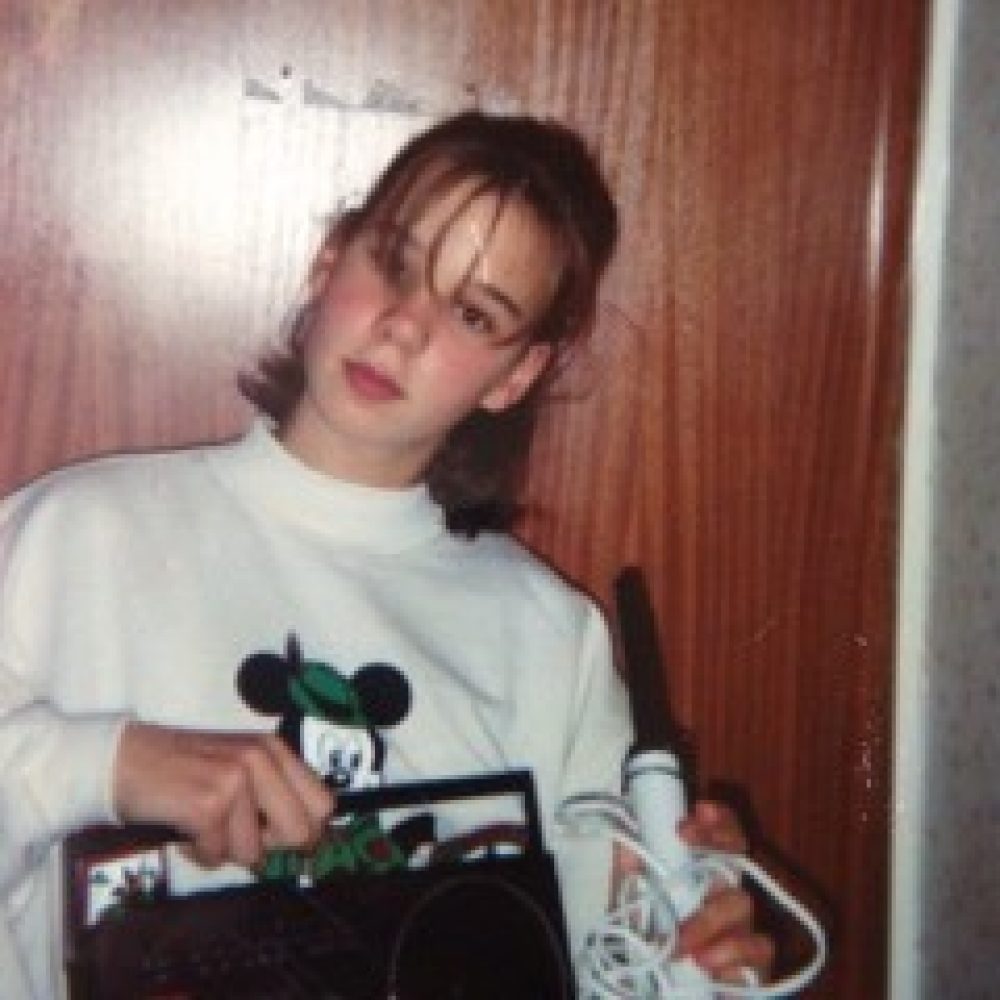
H: My name is Helen and I head up the emotional and mental wellbeing work that we do in Luton, this work feeds into what we do with the website and gives the young people of Luton a voice in what we do. I also deliver training and give lots of talks on mental health. This is a photo of me when I was a teenager...

SHUK: How has your understanding of the importance of looking after your mental wellbeing changed from when you were a young person?
J: I didn’t have a clue about it as a teenager; I was told it was attention seeking behaviour if you were down, sad or angry. Now, because i have struggled with anxiety and depression at times, I understand that that is so far from the truth.
H: When I was a teenager and you were struggling with your mental health it was put down as "hormones" or "attention seeking" because of this I didn’t understand that your mental health was something you had to look after and just thought it was something you had to be ashamed of. Now I know it is just as important as looking after my physical health, I go to the doctor for my asthma, which means that I also go to the doctor when I’m struggling with stress or anxiety.
SHUK: What do you think was your hardest life change as a teenager to adapt to?
H: Being noticed maybe? Every few years my mum would have another baby and so I just spent a lot of time feeling lost and unimportant. Especially as three of my siblings were in school with me and they all had better grades and didn’t get into trouble like me. I felt like an outcast at home and in school and with my friends.
J: For me it was bereavement. My best friend was killed in a car crash and I lost my much loved grandma all within a month. Loss effects our mental health greatly, I just didn’t realise how much when I was 12.
SHUK: What do you think is the hardest change for young people to adapt to now a days?
J: I think social media plays a huge part in how we feel about ourselves; how we want to look perfect and look like we are having fun because we believe everyone else is. I know it’s not true as everyone is struggling with their own stuff, also trying to make it look like they are having an awesome time. It is hard to turn away from social media.
H: I think the change from being a child to an adult, it’s hard to adapt to when you are expected to be an adult and make adult decisions (such as choices about your future) but at the same time being treated like a child and still dealing with the physical changes of becoming and adult.
SHUK: When you were having a bad mental wellbeing day at School, what did you do? Was there someone you could tell? What did they say? Did you tell your friends? Did they understand?
J: I struggled to talk about my feelings when i was a teenager as my family didn’t encourage us too so , I didn’t tell anyone until I was in my late teens about how hard i had found certain things. I regret that now, which is why I do my job: I know the value of someone listening to you.
H: I didn’t really have anyone to talk to. I would yell at people or walk out of lessons or get in fights. When I expressed how much I was struggling to a few of my friends they would call me a "psycho" and would walk away from me until I was “normal” again. I just felt ashamed.
SHUK: What advice would you give to young people struggling with any aspect of their mental wellbeing?
J: Find help - whether that’s through a friend, parent, counsellor, online safe place (Childline, The Mix or Young Minds) - and begin to explore why you feel like you do. Don’t stay silent, there’s people who want to help.
H: Ask for help, people are much more understanding now, it’s not something to be ashamed of and there are loads of different places you can get help from, online, in person, over the phone and more (as Jo has mentioned above). Also find healthy ways of expressing how you feel, art, music, baking, writing, working with animals. Mostly be kind to yourself.
Happy National Poetry Day friends! To celebrate, we've got an inspiring poem by Nikita Gill titled 'A Conversation with My Mental Illness.' If you read it and want to share your thoughts, you can comment your answers to the below questions on our Facebook, Twitter, Instagram or Tumblr accounts. We'd love to hear from you!
What do you think is the main thing being said in this poem?
How does the poem make you feel? Why?
Are there any lines or words which you specially like?
A Conversation with My Mental Illness
Every sleepless night I am interrogated
by the darkness that lives inside of me.
It says to me:
'You are pointless.'
I respond:
'No one in this world is pointless.'
It scowls at me:
'You are a terrible person.'
I admit:
'I am a good person who did terrible things.'
It rages at me:
'No one needs you.'
I countered:
'There are people who have adored me.'
It seethes at me:
'And what of those who hated you?'
I sigh:
'Being unforgiving of others is a sign of insecurity.'
It finally explodes:
'I will make sure you always doubt yourself!'
And every night
I gather my courage
as my armour and say:
'And whenever you do,
I will look at the vastness
of the every changing style
the presence of a moon
that helps the sea
the same sunset that has been going
around the earth
for billions of years
and remind myself
that the same universe that made them
and gave them such purpose
also made me.
And nothing you say to me
will ever convince me otherwise
because that is a fact
I will never question about my journey.'
Taken from the book Wild Embers by Nikita Gill, p14.
I'll admit, when I was asked to write this blog, I wasn't sure how to start. Dictionary definitions have been done to death, and the definition of "self-esteem" doesn't really do a lot to explain what it's like to have good self-esteem:
"Belief and confidence in your own ability and value."
This is the first definition I found. I'm sure you knew that already. People talk a lot about having good self esteem, and believing in your own worth, and why good self-esteem is important. They're right -- it is important to have good self-esteem. You have to live in your own head, after all. It's important to get along with yourself. Having confidence in yourself, knowing that you're worth something, is important because it allows you to accept yourself, and buid on the skills you have, and learn to like yourself.
But where do you start? How do you build good self-esteem?
There are a lot of ways to do it. Why don't you make a list of all the things you like about yourself? Not just physical traits, but skills you have, or interests you love? That is the most basic and simple way to make yourself realise that there are things about you that are inherently valuable, things you're good at, things you're interested in.
But I'll tell you something that most people don't say, when they talk about self-esteem: Everyone has moments where it's hard. Where you feel unconfident, or out of your depth. That's why having good self-esteem is so important. Because, when you feel unconfident or out of your depth, you know that those feelings won't last forever, and you can pick yourself back up. Having good self-esteem doesn't mean that you're confident all the time, just that you have the tools and knowledge to remind yourself that you're valuable and important.
Another thing which helps improve your self-esteem is self care. Self-care isn't just buying some super fancy soap from Lush and baking a chocolate cake from scratch. Self-care can be something as simple as having a long shower, or eating your favourite food, or listening to your favourite song on repeat. Doing things that make you happy improve your self-esteem, because they improve your overall emotional well-being. Try to treat yourself once a week, if you can.
Building self-esteem, and maintaining it, is an ongoing process. It takes a long time, and it's not always easy. But it's so important to accept yourself. I hope these tips have helped, a little!
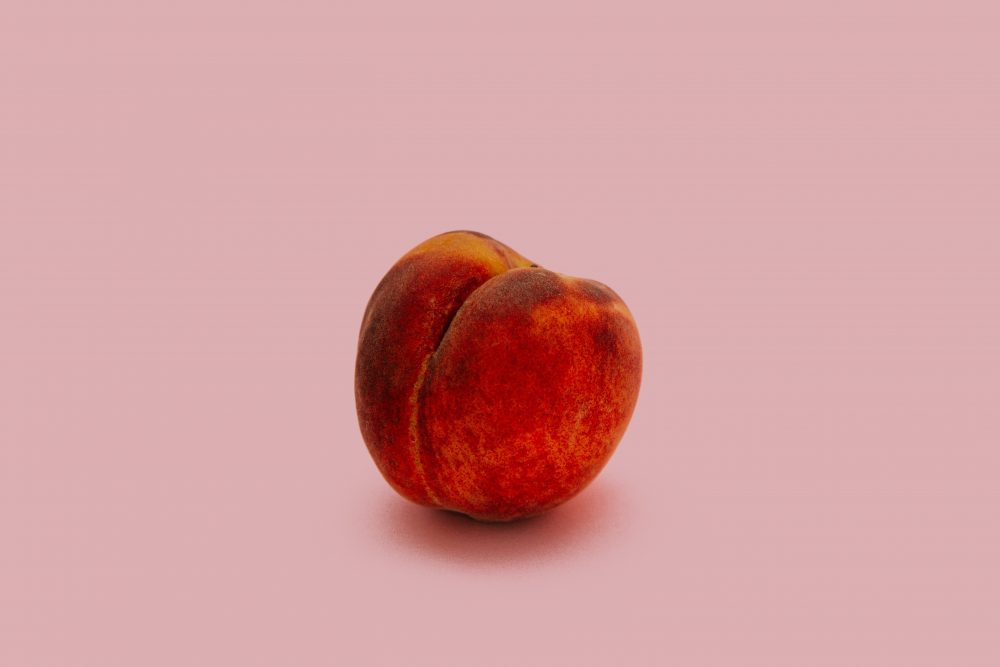
What have all these people got in common?
· Matilda
· Charlie
· James
· Sophie
· Danny
Yup, they are all imaginary characters, from the imagination of Roald Dahl. None of them are real, none of their lives are real. And yet…
They are orphans, sufferers, victims of bullying, often worried, scared and voiceless, strugglers who undergo changes to become the heroes of their own destinies.
Don’t we sometimes wish we could have that one person who encourages us, inspires us and help us, a magical person to guide us through our trials and pains?
Of course, you know that real life doesn’t have magic, Big Friendly Giants nor gigantic peaches that we can fly away on.
It does, however, hold real life catalysts: people who can help us become more of the person we want to be. These catalytic people are people who listen to us, who help us deal with the daily challenges we face. They might be a friend, a family member, a teacher, a counsellor, a CAMHS worker.
They aren’t magicians, they can’t make everything better, but, if just for 10 minutes a day, they make you feel like you can do this, then they are your BFG or Miss Honey.
Find your Miss Honey today!



